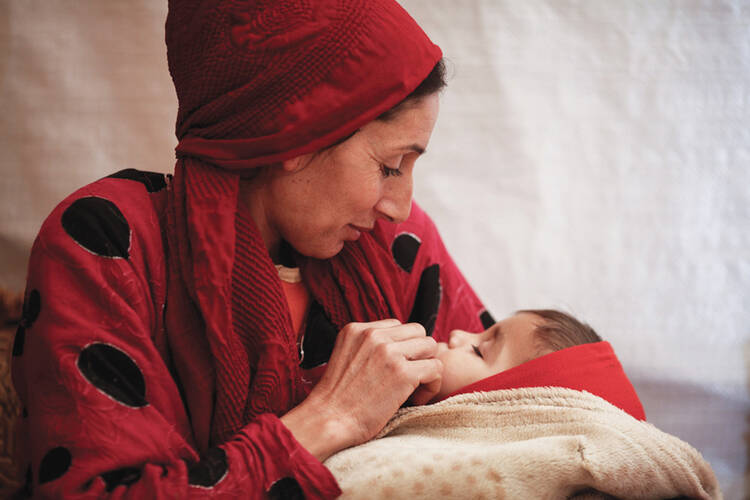The number of refugees fleeing from Syria into neighboring Lebanon passed the one million mark on April 3, according to U.N. officials, a bleak milestone exacerbated by rapidly decreasing social resources and a host community stretched to the breaking point. Just over three years after Syria’s conflict began, Lebanon has become the country with the highest per capita concentration of refugees worldwide and is struggling to keep pace with a crisis that shows no signs of slowing. Refugees from Syria now make up almost a quarter of the resident population.
“The influx of a million refugees would be massive in any country. For Lebanon, a small nation beset by internal difficulties, the impact is staggering,” said U.N. High Commissioner for Refugees António Guterres. “The Lebanese people have shown striking generosity, but are struggling to cope. Lebanon hosts the highest concentration of refugees in recent history. We cannot let it shoulder this burden alone.”
The influx of Syrians escaping the civil war is accelerating. In April 2012, there were 18,000 Syrian refugees in Lebanon; by April 2013, there were 356,000; now, in April of this year, one million. Every day, U.N.H.C.R. staff in Lebanon register 2,500 new refugees.
The impact on Lebanon has been devastating. The country has experienced serious economic shocks, including a decline in trade, tourism and investment and an increase in public expenditures. Public services are struggling to meet increased demand, with health, education, electricity, water and sanitation particularly taxed.
The World Bank estimates that the crisis in Syria cost Lebanon $2.5 billion in lost economic activity last year and threatens to push 170,000 Lebanese into poverty by the end of this year. Wages are plummeting, and families are struggling to make ends meet.
Children make up half the Syrian refugee population in Lebanon. The number of school-age children is now more than 400,000, eclipsing the number of Lebanese children in public schools.
The new president of Caritas Lebanon has launched an appeal to the international community to work harder for the “common good,” seek an end to the conflict in Syria and do more to help refugees who have fled to neighboring countries like Lebanon. The Rev. Paul Karam said the needs surrounding his new job are huge.
The influx of Syrian refugees, he worries, poses existential social, political and humanitarian questions for Lebanon. “These are very big problems for Lebanon. That’s why it is very urgent now, not tomorrow, and not after tomorrow, to see how we can resolve this problem.”
The Syrian Observatory for Human Rights updated its count of the dead on April 1 as the conflict moves deeper into its fourth year. The group now reports that at least 150,000 people have been killed in Syria’s three-year-old civil war, a third of them civilians, though the true toll could be much higher. The nation’s Christians have become targets of displacement and death threats and the subjects of extortion, kidnapping and at times brutal homicides. Efforts to end the conflict by bringing together representatives of President Bashar al-Assad’s government and the opposition have so far failed. The United Nations peace mediator for Syria said in early April that talks were unlikely to resume soon, and a U.N. study reported in March that if the conflict were to end tomorrow, it would take the nation 30 years to recover.








